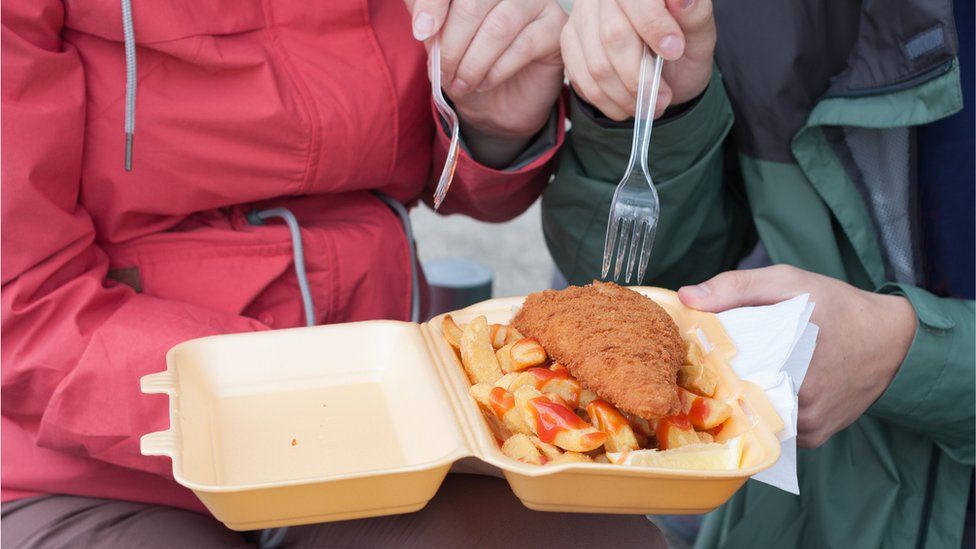ARTICLE AD BOX
 Image source, Getty Images
Image source, Getty Images
By Marc Ashdown & Lora Jones
Business reporters, BBC News
Single-use items like plastic cutlery, plates and trays will be banned in England, the government has confirmed.
It is not clear when the ban will come into effect, but it follows similar moves already made by Scotland and Wales.
Environment Secretary Thérèse Coffey said the move would help protect the environment for future generations.
Campaigners welcomed the ban, but called for a wider-ranging plastic reduction strategy.
Government figures suggest that 1.1 billion single use plates and more than four billion pieces of plastic cutlery are used in England every year.
Plastic waste often does not decompose and can last in landfill for many years.
Although it might be useful in terms of food hygiene, it can also end up as litter, in turn polluting soil and water.
The confirmation of the move from the Department for Environment, Food and Rural Affairs (Defra) follows a long consultation, which will be published on Saturday 14 January.
Each person in England uses an average of 18 single-use plastic plates and 37 items of plastic cutlery every year, according to Defra, while just 10% of those are recycled.
Ms Coffey is set to ban a range of single-use plastic items mainly relating to takeaway food and drink.
"I am determined to drive forward action to tackle this issue head on. We've already taken major steps in recent years - but we know there is more to do, and we have again listened to the public's calls," she said.
"This new ban will have a huge impact to stop the pollution of billions of pieces of plastics and help to protect the natural environment for future generations."
Similar bans have already been made in Scotland and Wales, while single-use plastic straws, stirrers and cotton buds were already banned in England in 2020.
This latest measure does not, however, cover items found in supermarkets or shops. The government said it would address those by other means.
Megan Randles, political campaigner for Greenpeace UK, said that the organisation welcomed the ban but further action was needed.
She said: "We're dealing with a plastic flood, and this is like reaching for a mop instead of turning off the tap."
She called on the government to deliver a "meaningful" strategy on how to reduce plastic use, which would also include stringent targets and "a proper reuse and refill scheme".

 2 years ago
58
2 years ago
58








 English (US) ·
English (US) ·